Publications
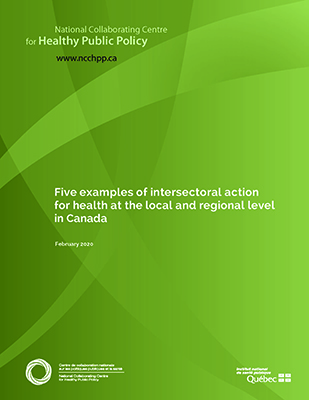
Five examples of intersectoral action for health at the local and regional level in Canada
This document describes and analyzes five Canadian experiences of intersectoral action for health linked to local and regional governments.
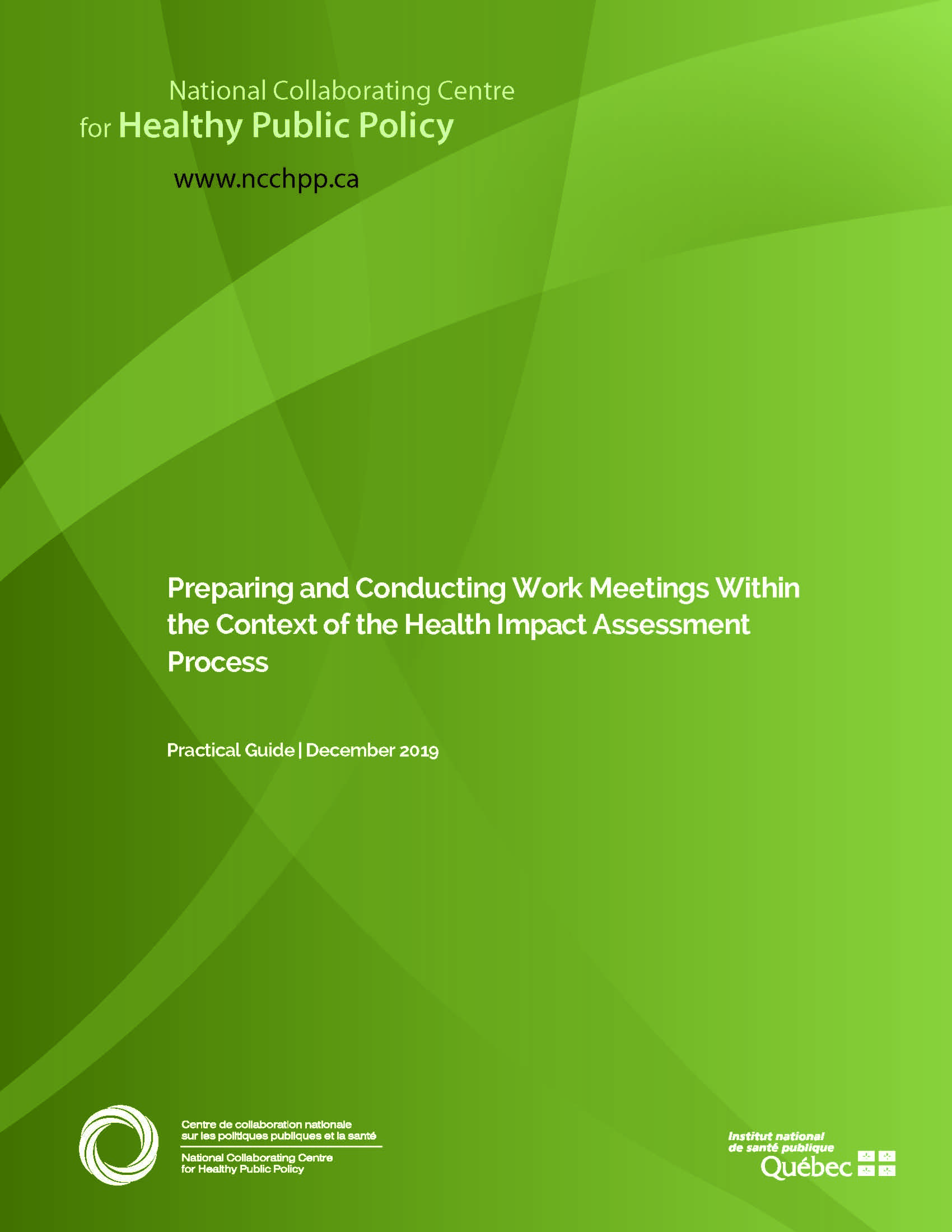
Preparing and Conducting Work Meetings Within the Context of the Health Impact Assessment Process
This practical guide aims to support the reader in carrying out a health impact assessment (HIA).
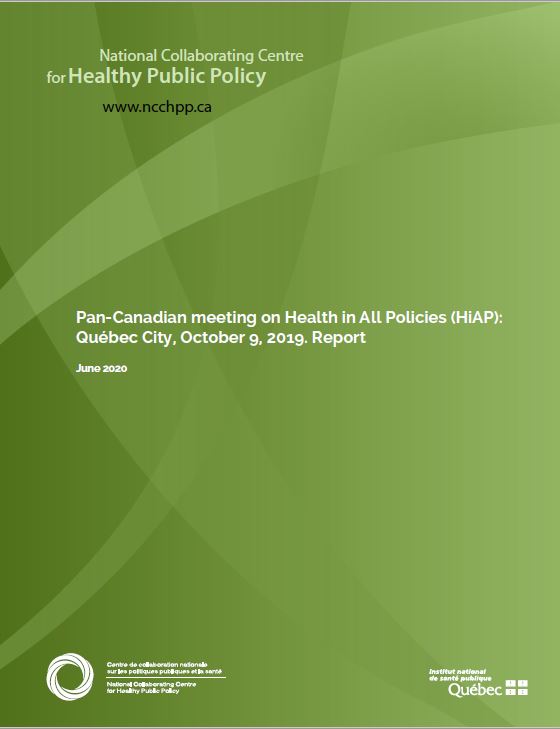
Report of the Pan-Canadian meeting on Health in All Policies (HiAP)
The National Collaborating Centre for Healthy Public (NCCHPP) organized a Pan-Canadian meeting on Health in All Policies (HiAP) in partnership with the Public Health Agency of Canada and the ministère de la Santé et des Services sociaux du Québec (MSSS – Québec’s ministry of health and social services). The Centre has prepared a report presenting the results of the discussions that took place during the meeting, as well as a summary version.
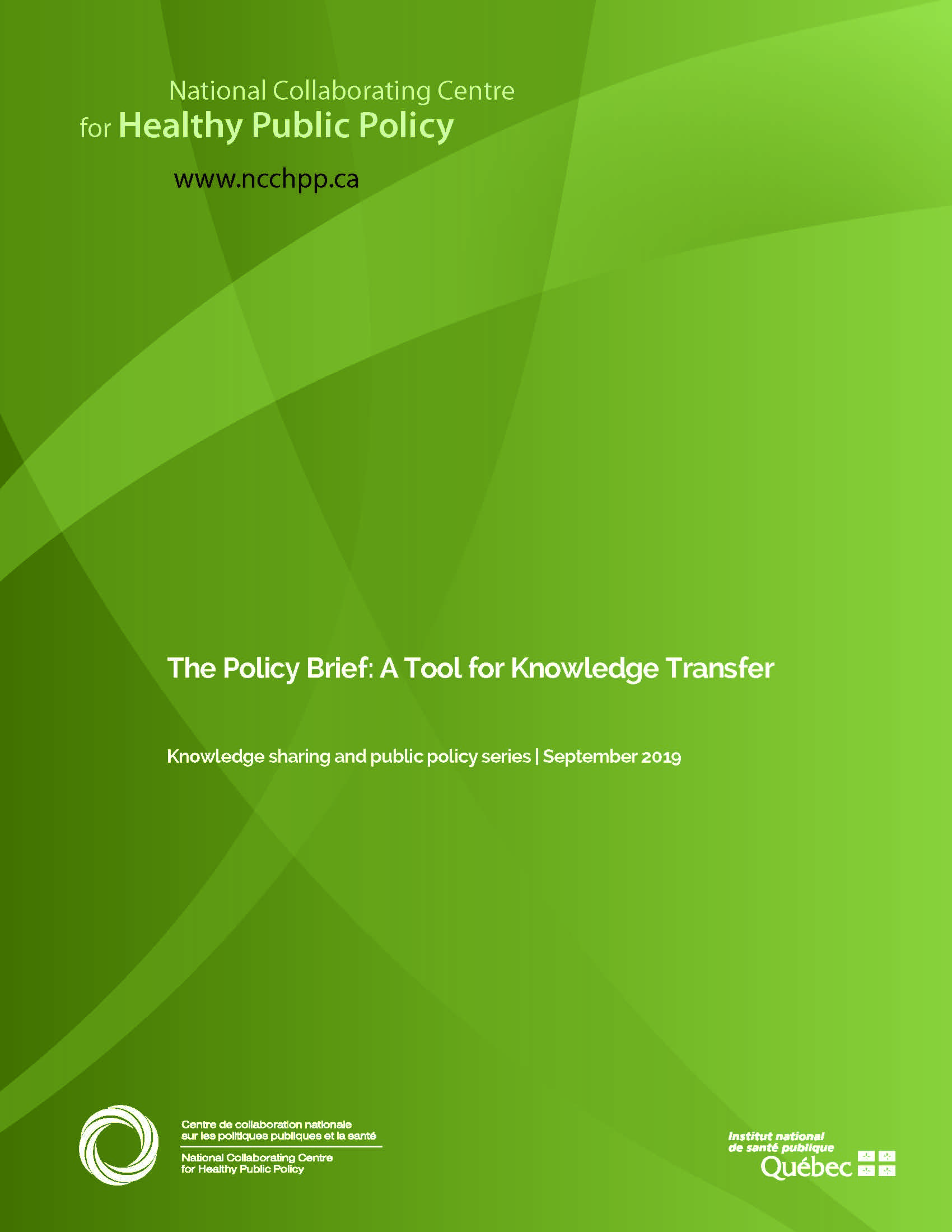
The Policy Brief: A Tool for Knowledge Transfer
This document presents the characteristics of a policy brief and the elements to consider when writing one. It also offers a selection of guides for writing policy briefs.
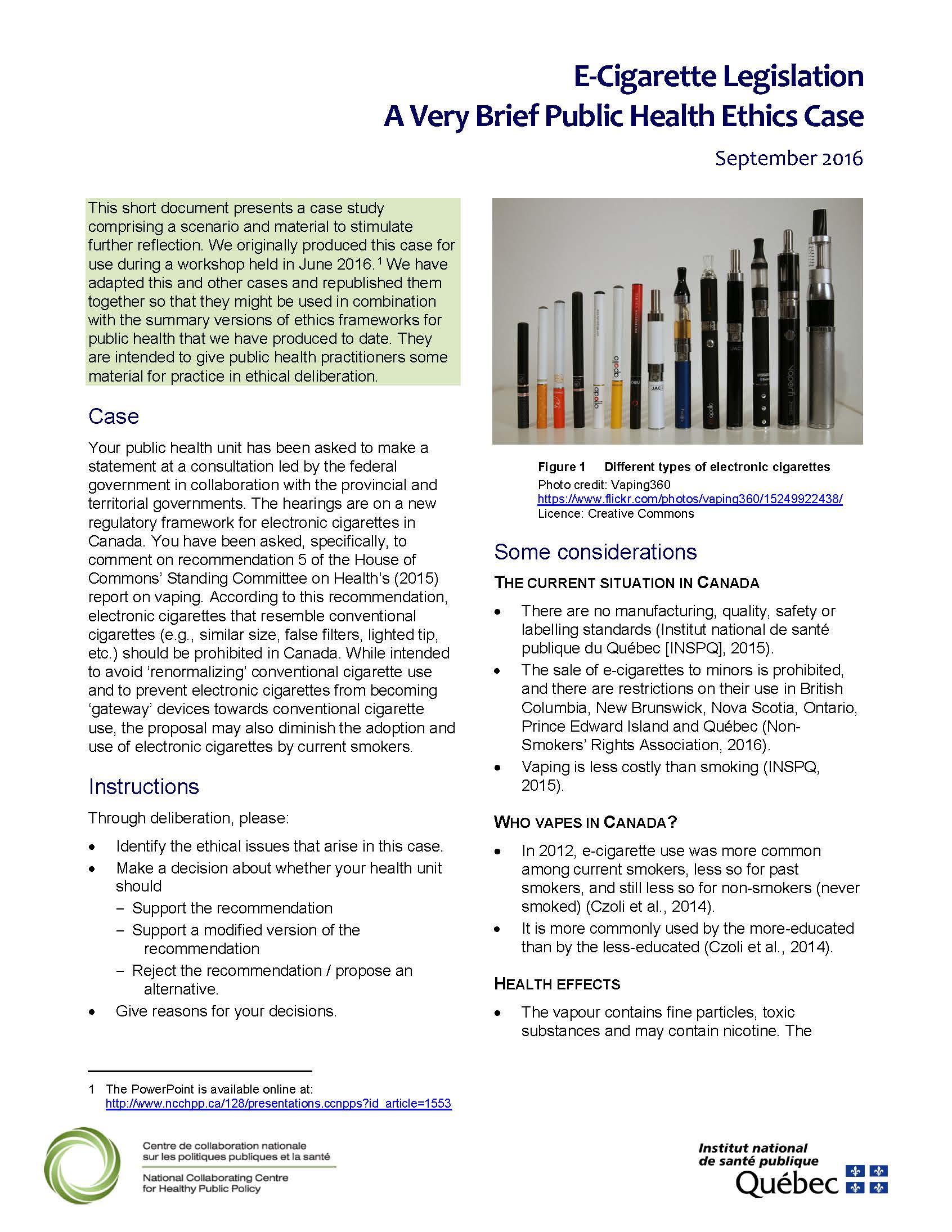
Collection of Adapted Summaries of Public Health Ethics Frameworks and Very Short Case Studies
We have started to produce and to gather together these adapted frameworks and cases to help familiarize practitioners with frameworks and with ethical deliberation. To date we have eight frameworks and six cases, and will be adding to these over time.
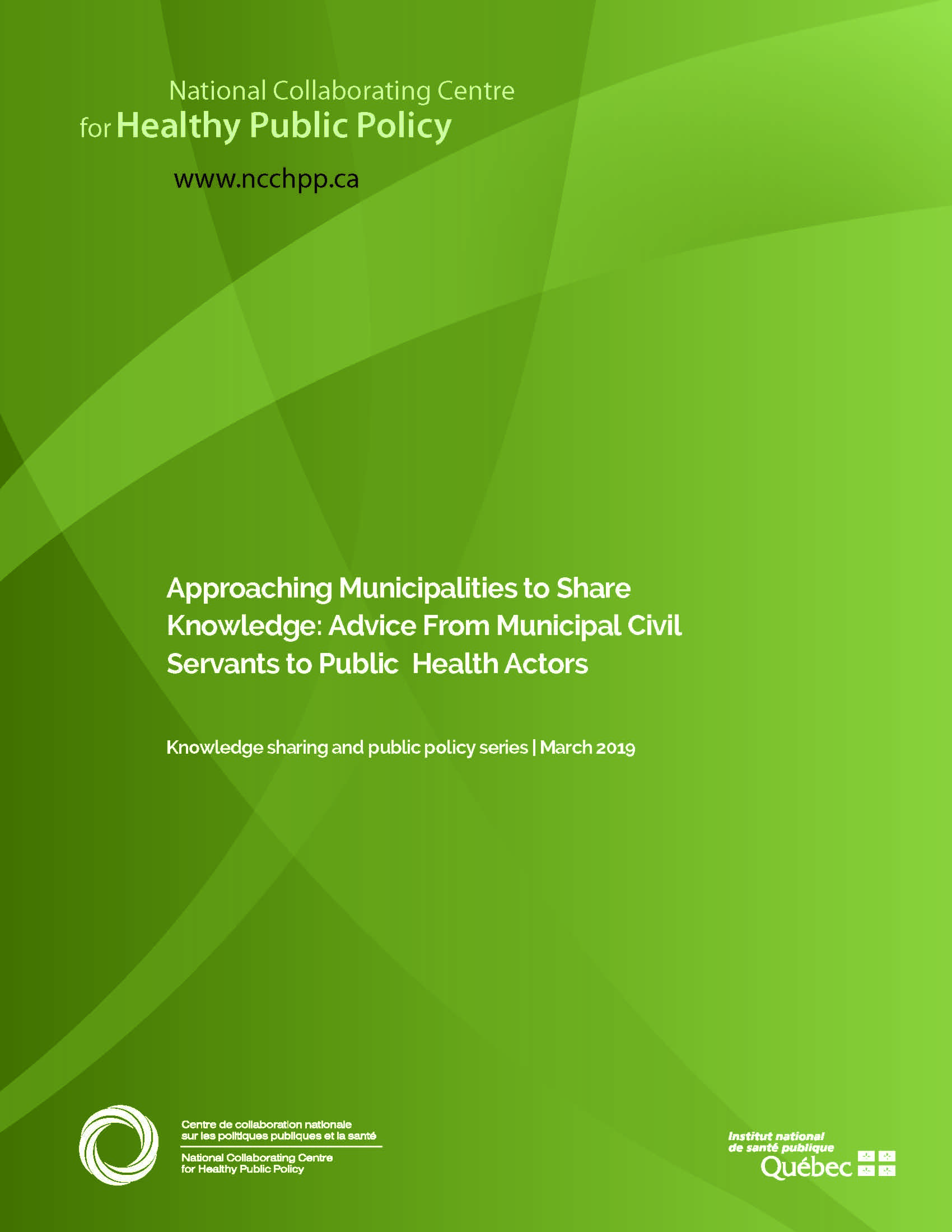
Approaching Municipalities to Share Knowledge: Advice from Municipal Civil Servants to Public Health Actors
What is an effective way to share public health knowledge with the municipal sector? In this document, we present the views expressed by civil servants in Canadian municipalities.
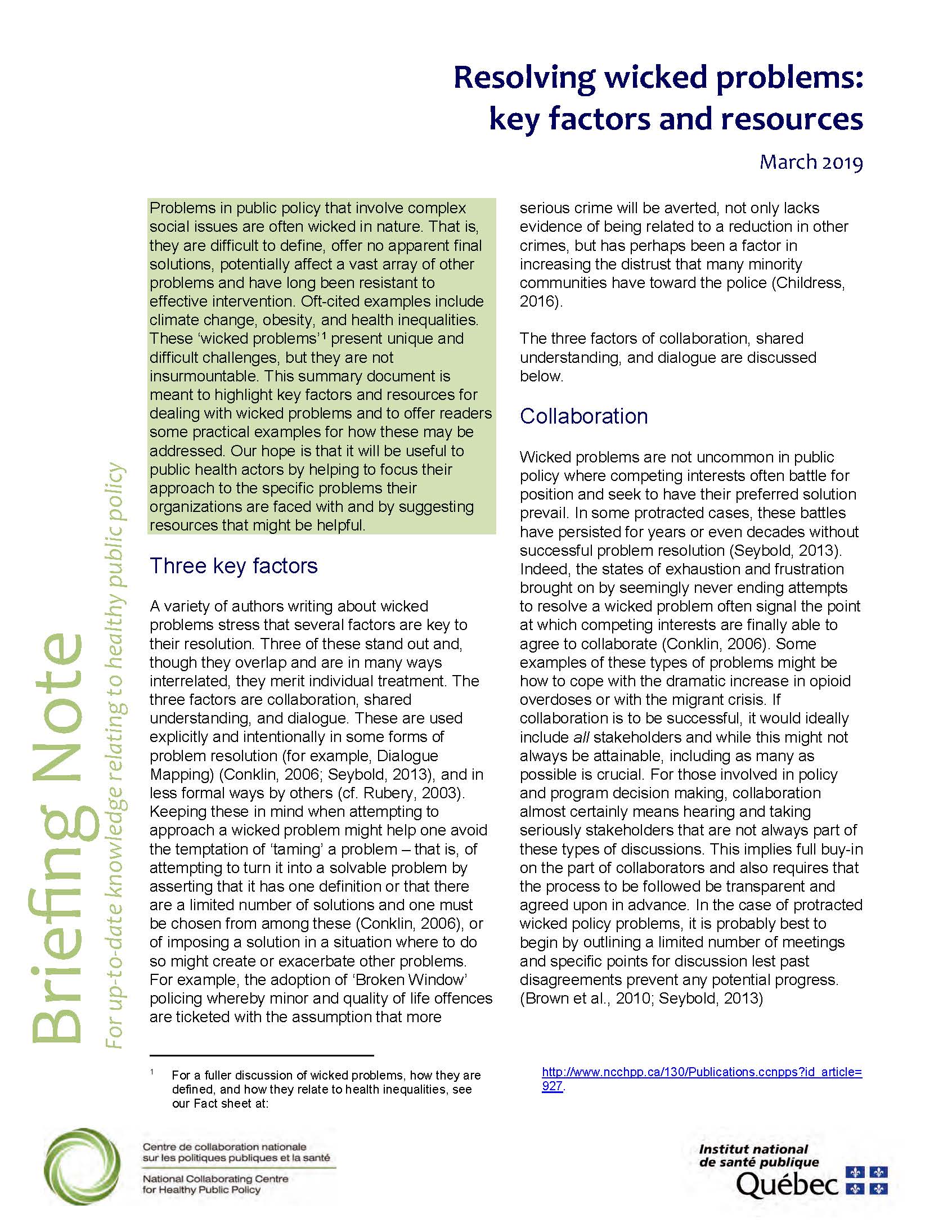
Resolving wicked problems: key factors and resources
This document is part of a series of documents, webinars, and workshops on wicked problems.
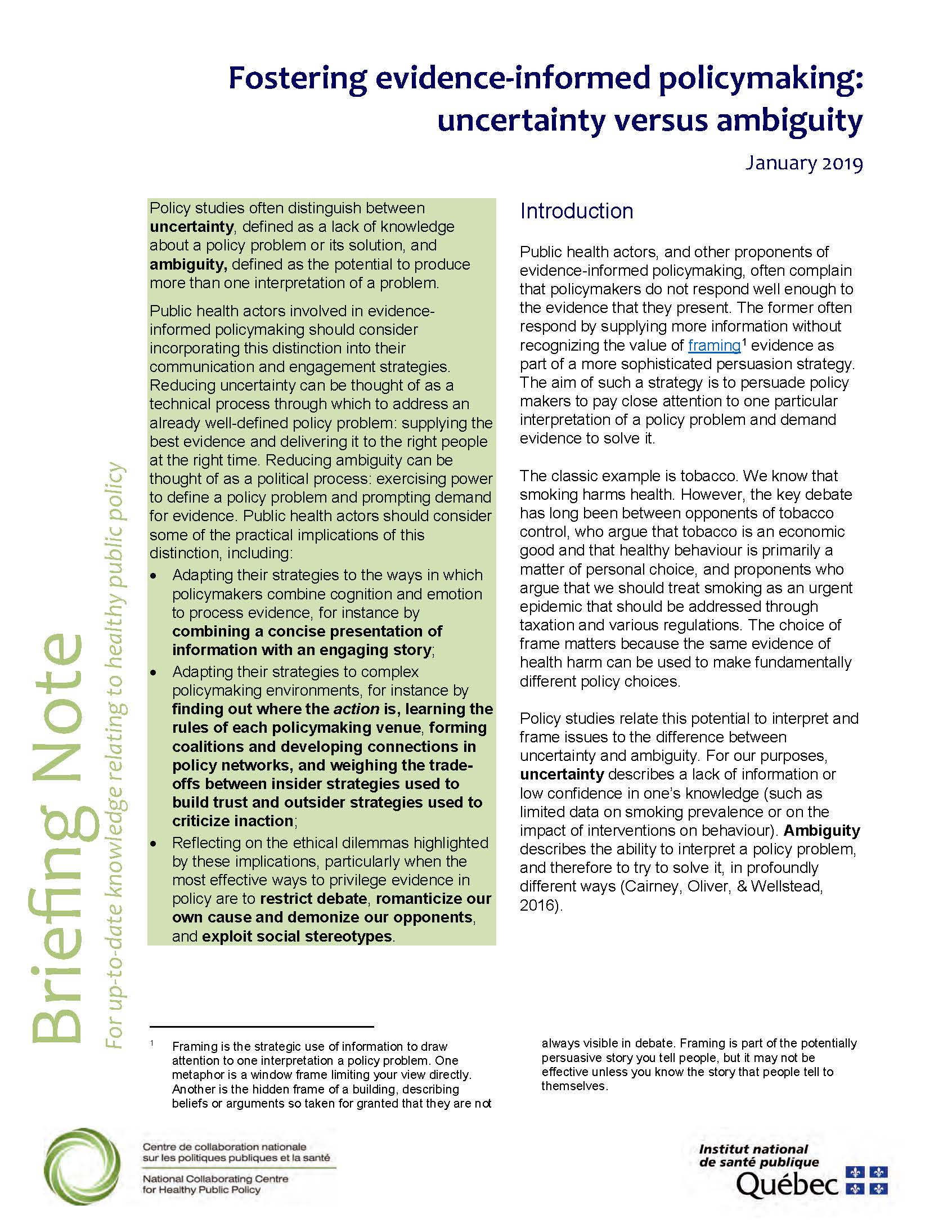
Fostering Evidence-informed Policy Making: Uncertainty Versus Ambiguity
This briefing note, by Paul Cairney of the University of Stirling, presents the importance of distinguishing between uncertainty and ambiguity in the strategies aimed to develop evidence-informed policy making.
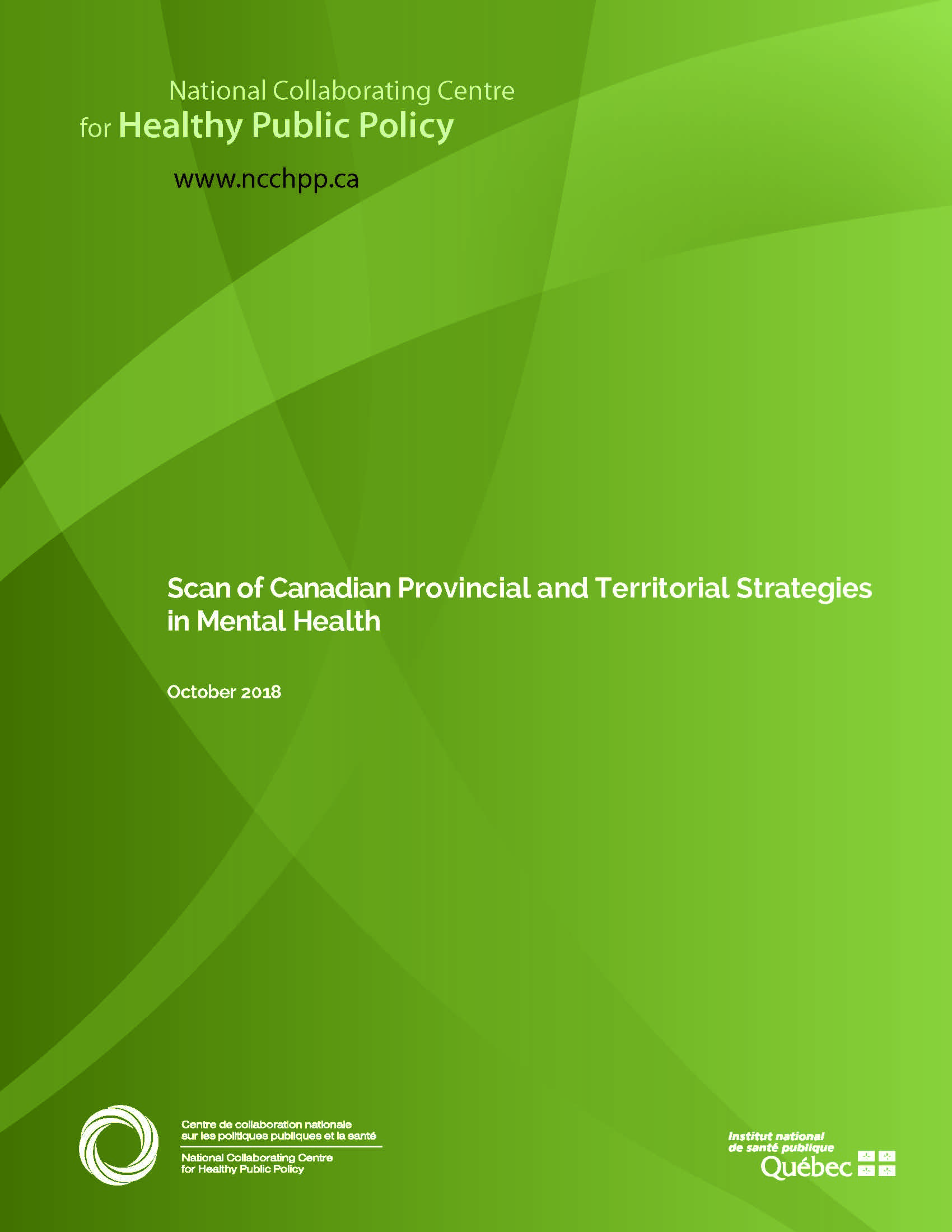
Scan of Mental Health Strategies across Canada
The Scan of Mental Health Strategies aims to show what is being developed in the field of population mental health across Canada. It provides an overview of mental health and wellness and related strategies through comparative tables and summaries, with a particular emphasis on work related to the promotion of mental health and the prevention of mental illnesses.

Examples of the Use and Adaptation of the NCCHPP’s Framework for Analyzing Public Policies
The NCCHPP presents a few examples of use and adaptation of its Framework for Analyzing Public Policies by different public health actors in Canada. These six examples were collected during a call for stories, launched in December 2017.


